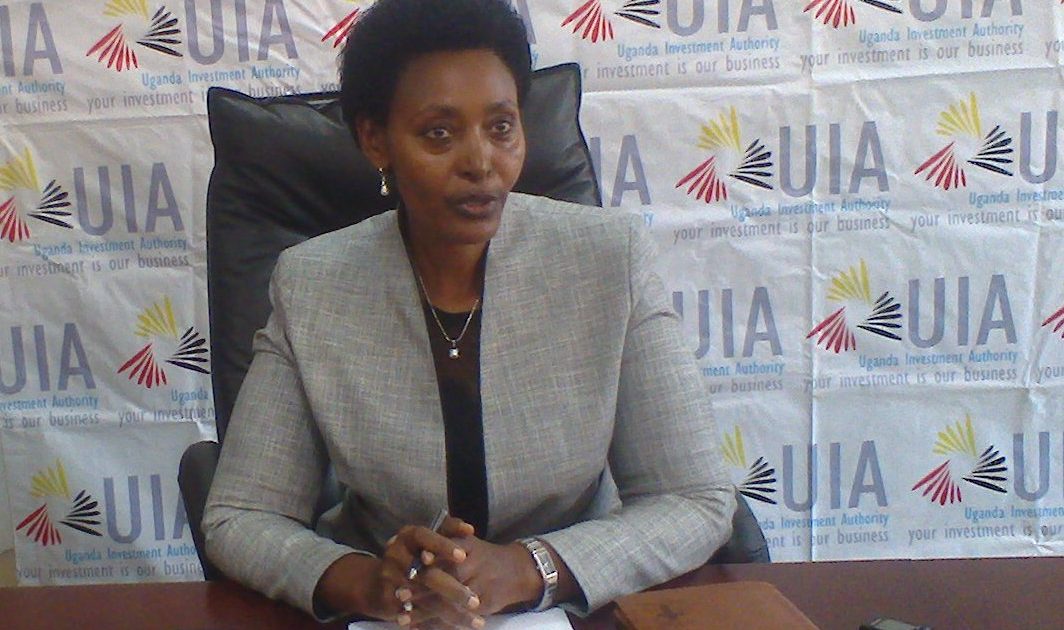The interdiction of Uganda Investment Authority (UIA) Executive Director Jolly K. Kaguhangire by the Board over “serious corruption allegations” and “abuse of office” has widely been debated.
In a letter dated June 26, 2018, Emely Kugonza, the Chairman, UIA Board of Directors said Basil Ajer, the Director SME & STI has been appointed the acting Executive Director during the three-month period of investigations against Kaguhangire. She was just a few months into the job considering the fact that she assumed office in late 2017, replacing Eng. Dr. Frank Sebbowa.
However, the current power struggle and fights at UIA aren’t new; the body responsible for promoting investments in Uganda has had a leadership crisis for the last seven years.
This has cast a bad image on UIA and cost the country trillions of shillings as foreign and local investments have been affected.
It is important to note that since the retirement of Dr. Maggie Kigozi as UIA ED in June 2011, the investments body hasn’t been the same.
Kigozi had become the face of UIA, having served the agency for 11 uninterrupted years. Her tenure was generally scandal free save for the industrial parks in which ‘quark’ investors were allocated land.
She concentrated her efforts in attracting foreign investors. Her undoing at UIA is failure to put in place right structures and good corporate governance practices that has put the investments body in turmoil since her departure.
The Fights
UIA fights intensified immediately after Kigozi’s quitting. It took 15 months to appoint her ‘rightful’ successor; in October 2012, Eng. Dr. Frank Sebbowa replaced Kigozi as a substantive UIA Executive Director.
For over a year without a head, power struggle emerged at UIA. The power struggle saw Tom Buringuriza, Kigozi’s deputy, who replaced her in acting capacity forced out prior to Sebbowa’s appointment.
Buringuriza’s exit was followed by 11 senior staffers resigning, with most of them claiming that through his leadership, the investment body had lost direction.
Consequently, Lawrence Byensi replaced Buringuriza-still as acting Executive Director until Sebbowa was appointed substantive ED.
This meant that Sebbowa inherited a disintegrating body with dissenting voices. Immediately, after taking office, Sebbowa promised to develop industrial parks that his predecessor Kigozi had started and attract further investments.
His four-year tenure ended in October 2016 and while he could have perhaps been considered for another term, he willingly retired into private business. At 64 years then, Sebbowa said he could no longer serve in a public office.
However, sources at UIA intimated that the fights at the investments body also forced him out.
Sebbowa mainly concentrated on promoting and attracting investments in the country. While he organized the team he found at UIA and ensured that there were no internal infightings- at least before the media and the public, some ‘clique of people’ who were hungry for money through dubious deals never liked him.
After announcing his retirement, Sebbowa said in a media interview: “Before I joined, there was internal fighting in UIA and people were not working except accusing each other in the media. I think that was task number one, to cool down temperatures so that people get to work rather than focus on which paper to leak information to. When I came, we had a lot of people who were not working. Majority of them left voluntarily because they couldn’t keep pace with the new environment.”
However, a report by the Committee of Parliament on Commissions, Statutory Authorities, and State Enterprises (COCASE) that reviewed the financial years ending in June of 2011, 2012, and 2013, found out that Sebbowa reportedly took over active supervision of interns from his juniors at some point and extended their stay at the workplace beyond what was stipulated.
Though interns at UIA were supposed to be paid Shs100, 000 a month, Sebbowa reportedly ordered that they be paid Shs300, 000. Asked by the committee why he had accorded the interns special treatment, Sebbowa answered that as a “former lecturer, he was keen on interns.”
Nonetheless, apart from the above incident, Sebbowa and his team kept the investment body free from corruption related scandals in the last four years he was at the helm of the body.
Don’t Mix Politics With Business
In an earlier interview, Sebbowa said Uganda should woo foreign investors using fellow investors not politicians.
“ I have noted that in other countries like Rwanda, Kenya, Ethiopia, South Korea, the heads of States no longer go [for foreign trips] with political ministers, but they go with investors,” he said, adding: “So whoever is coming here should be aware that they should convince President Yoweri Museveni to go with investors; people who will talk to investors. You know there is nothing good as an investor meeting an ambassador for your country. When South Korean President came here, she came with over 100 investors and a few ministers. You find that 80% of our delegations are bureaucrats, Permanent Secretaries, Under Secretaries….They (investors) are more interested in talking to other business people who are doing business here. My successor needs to maintain the momentum of the local investors. If you disregard them, then you are lost. There isn’t a single country in the world which developed on the basis of foreign investment. It is not Government supporting them with free money, but they need roads, airports…”
Related to politics, the current Board Chairman of UIA’s appointment was influenced by politics. While he is a respected businessman, Kugonza’s appointment was mainly due to his closeness to Finance Minister Matia Kasaija.






